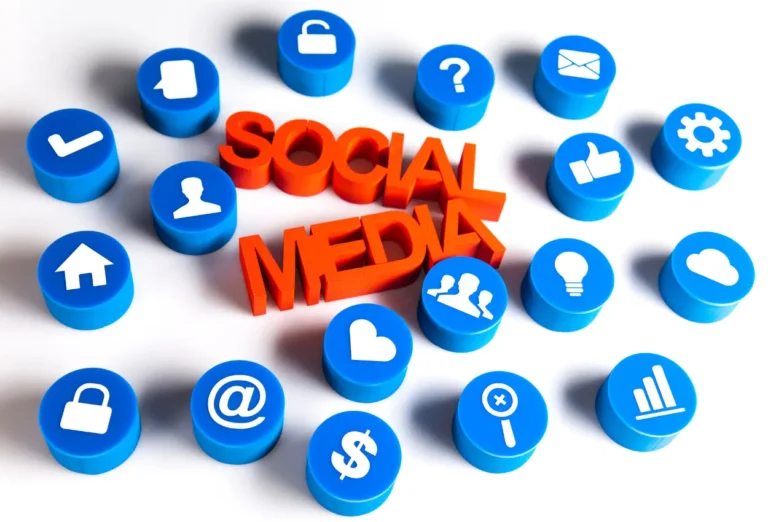Advantages And Disadvantages Of Faceless Marketing On Social Media
Pros: Faceless marketing on social media can save time and reduce costs. Cons: It may lack personal connection and authenticity.
Faceless marketing on social media involves promoting a brand without showcasing individuals. This method can streamline content production and reduce the need for personality-driven campaigns. Brands can maintain a consistent voice and image, which is vital for brand recognition. Faceless marketing can also make it easier to manage public relations issues, as there are no individual personas to scrutinize.
However, it may struggle to build trust and loyalty among customers who seek personal interaction. People tend to connect more with faces and stories, making faceless marketing potentially less engaging. Balancing efficiency with authenticity is crucial for success in this approach.
What is Faceless Marketing?
Faceless marketing means no personal identity. Brands use logos or mascots instead. This method avoids showing real people. It creates a unique brand personality. Companies can control their image better. It often feels professional and consistent.
Faceless marketing is growing fast. Social media helps this trend. It allows brands to reach a wide audience. Many companies choose this strategy. It saves time and resources. Fans still engage with the brand. They like the mystery and creativity.
Advantages Of Faceless Marketing
Faceless marketing saves money. You do not need to pay for models or actors. This helps small businesses grow. More funds can go to other important areas. Many brands benefit from this approach.
Faceless marketing scales easily. One video can reach millions. It works for any business size. More content can be created quickly. This method allows for fast growth.
Engagement And Interaction
Automated responses can save time. They answer common questions quickly. This helps brands stay active 24/7. But users might feel they are talking to a robot. This can reduce personal connection. Some questions need human touch. Automated replies may not handle complex issues well.
Faceless marketing can create a consistent brand image. Users get the same message every time. This builds trust. But people like to feel special. They may miss personal interaction. Personal touch makes users feel valued. Faceless brands may seem distant.
Content Creation
AI tools help create content quickly. These tools can write posts, captions, and comments. AI-generated content saves time. It also helps maintain a consistent posting schedule. Sometimes, AI lacks a personal touch. This can make the content feel less engaging. AI tools improve over time with better algorithms. Businesses benefit from AI efficiency and speed.
Disadvantages Of Faceless Marketing
Faceless marketing on social media has gained traction in recent years, but it comes with several notable disadvantages. One of the main drawbacks is the lack of personal connection with the audience. When brands choose to remain faceless, they miss out on the opportunity to build trust and loyalty among their followers. Consumers today crave authenticity and relatability, which are often absent in faceless marketing strategies.
Additionally, this approach can lead to diminished engagement rates, as users are less likely to interact with a brand that lacks a human touch. Ultimately, while faceless marketing might streamline operations, it risks alienating potential customers who seek genuine relationships on social media.
Brand Identity Challenges
Faceless marketing can feel cold. People like to see a human face. It makes brands seem more trustworthy. A face can show emotions and feelings. This connection is hard to create without a face. Brands might lose loyal followers. This is because people miss the personal touch.
Trust is important in social media. A faceless brand may seem unreliable. Customers want to know who they are dealing with. They feel safer with a person they can see. This trust is hard to build without a face. Some might avoid the brand due to doubt. They might think the brand is hiding something.
Ethical Considerations
Faceless marketing on social media raises ethical concerns about transparency and accountability. Users may question the authenticity of anonymous content. Balancing privacy and trust becomes crucial in this marketing approach.
Transparency
Faceless marketing can hide the true identity of a brand. Users may not know who they are interacting with. This lack of transparency can lead to trust issues. People like to know they are dealing with real humans. Being transparent builds trust and loyalty. Brands should show their true self to gain customer trust. Faceless marketing can seem deceptive. It might make customers feel suspicious. Transparency is key for ethical marketing. It ensures users feel safe and informed.
Authenticity
Authenticity is crucial in marketing. Faceless marketing can make a brand seem less genuine. Users want to connect with real people, not faceless entities. Genuine interactions build stronger relationships. Brands that show their human side often succeed more. Authenticity leads to better customer loyalty. It makes a brand more relatable. Faceless marketing can struggle to achieve this. Being authentic helps in creating a strong brand image. It shows customers that the brand is real and trustworthy.
Future Of Faceless Marketing
Faceless marketing is growing due to AI and automation. These technologies make it easier to create content without showing faces. Chatbots and virtual influencers are becoming more popular. They interact with users and promote brands. Data analytics help understand customer behavior better. This leads to more personalized marketing.
Virtual reality will play a big role in faceless marketing. Brands will use VR to create immersive experiences. Augmented reality will also be used for interactive ads. Voice search is rising. Marketers will optimize content for voice queries. Privacy concerns may increase. Companies will need to be more transparent.
Conclusion
Balancing faceless marketing on social media can be tricky. It offers anonymity but risks losing personal connection. Assess your brand’s needs carefully. Tailor your strategy to maximize engagement and maintain trust. Experiment and adjust to find the right balance. Ultimately, the key is authenticity and consistency in your marketing efforts.







